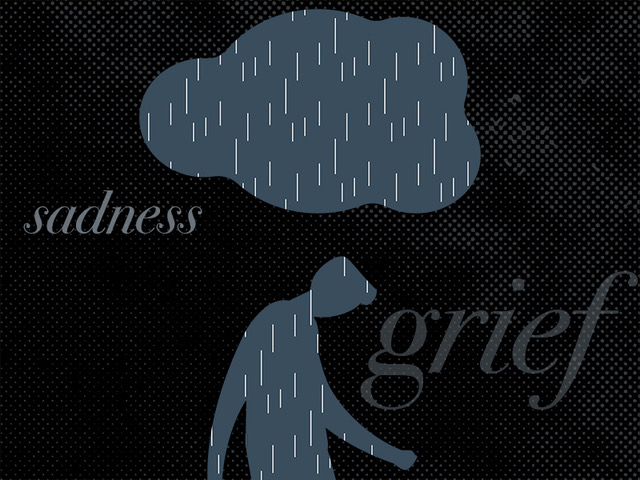
Navigating Grief at Work: What You Need to Know
Grief at work: In 2022, as part of our DEI efforts, our team started looking at factors that cause stress in the workplace. One that became apparent was grieving at work. At TCW, we define a grief event as often occurring when a friend or loved one dies, a friend or loved one becomes ill, a pet dies, or a relationship ends. These grief events are frequent in the workplace, and we estimate that a typical employee will experience this at least once, if not more while working at TCW.
For a long time, we, like most businesses, did not have defined policies around these grief events. But with some help from employees, fellow entrepreneurs, and friends, we worked on defining clear steps to aid employees during grieving. Eventually, these steps evolved into an actual grief-at-work policy.
Commitment to a Compassionate Work Environment: We at TCW strive for a compassionate work environment, but this is not often easy to show and execute. Developing this atmosphere has taken a lot of time through the core values of DEI and a robust benefits policy. We have improved over time, but this is an ongoing process.
Why We Acknowledge Grief at Work: Grief is one of the hardest things anyone must deal with – and when employees don’t have the space and tools to deal with it, it can and will affect them and likely their job performance. We think it is good business to acknowledge grief as a problem and give our employees and managers the tools to be responsive to grief.
Addressing Grief is a Core Value: People experience grief in many ways, and as a company, we need to continue to support our employees as they deal with ongoing grief issues in their lives. One of our core values is to pay it forward – help folks out, be a mensch, and heal the world. Living our core values includes helping and supporting employees in times of need. We broadly define grief as the death of a significant other, family member, or friend; the serious illness of a family member; the end relationship; or the death of a pet.
Everyone Experiences Grief Differently: Grief is not linear and likely goes on for a long time, including anniversaries of an event. Our grief policy strives to provide guidelines to support employees around taking time off and providing additional support. We also acknowledge that there are limitations that a company has in providing grief support.
Common Misconceptions of Grief in the Workplace: In the past, like many companies, we had limited policies around grieving because we saw it as too broad an issue or not something we could do much about, and frankly, we just had not thought about it in depth. COVID changed that. Grief was all around us, and like many things at TCW, we realized we needed to take steps to improve our response to grief.
Empowering Managers to Make Quick Decisions: Grief events also put managers under stress; they want to help but don’t know what to do. We want to make it as easy as possible for the manager and the employee to make quick decisions on what is needed. A crucial part of this grief-at-work policy and other policies at TCW is to remove an approval process and make it easy for a manager to move faster and be helpful – having a written policy and guidelines reduces the stress on managers; they don’t have to find their boss, HR, or their boss’s boss to decide on grief issues.
The Basics of our Policy: We have unlimited sick and personal time, and employees can take more time above these minimums if they are experiencing grief. In all cases, employees should work with their supervisors to take the needed time off. This policy intends to be broad guidelines for employees and their managers, and we expect and appreciate your empathy and resourcefulness as you navigate difficult times.
We have defined our grief categories to be very broad: We have defined our grief categories to be very broad: When we say family members, this is inclusive of chosen family members. Friends and extended family members are also broad definitions, as everyone will define those relationships differently.
Death of a Significant Other or Family Member: 4 days minimum. We try to be mindful about granting time off, not only in relation to the event itself but also during adversities or other hard times.
Death of an Extended Family Member or Friend: 2 days minimum. Sometimes team members need to be supportive of other family members on occasion. Flexibility is key.
Serious Illness of a Family Member: We will develop an ongoing and flexible schedule for caregiving and to provide emotional support for each employee. Supervisors should work to help employees schedule time as needed for support and caregiving to help relieve the stress.
The End of a Relationship: 1 day minimum - the end of relationship is a significant source of grief.
The Death of a Pet: 1 day minimum - pets play an imperative role in our lives.
Grief is not a one-day, one-month, or one-year event; it is ongoing. Grief is challenging, and we will continue to work with employees to help them manage difficult times as best we can. We intend to build a policy based on empathy and flexibility whenever possible. Please note our policy will evolve, update, and change as time does. Like many of our policies at TCW, this policy is unfinished, but it is a start. Taking on heavy problems within a company is an ongoing endeavor.
Does your company have a grief at work policy? We think everyone should have a grief at work policy because it benefits, people and businesses. It takes time to develop, but your employees and managers will thank you.
Have questions about grief at work? We are happy to help – Drop us a note.